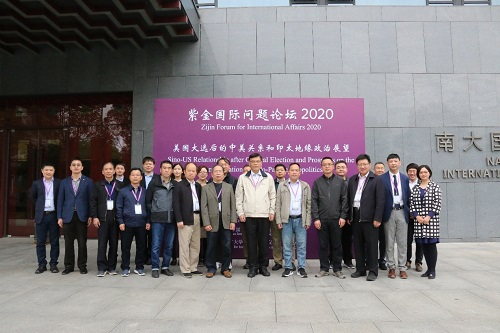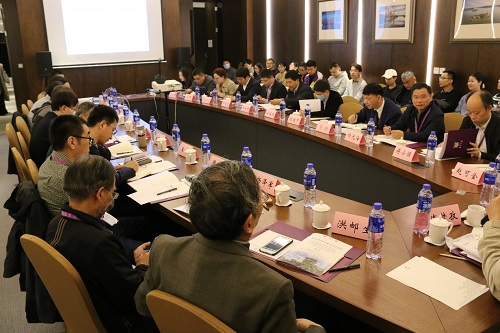NJU Holds 2020 Zijin International Affairs Forum
The 2020 session of Zijin International Affairs Forum, hosted by Nanjing University’s Institute of International Relations, Collaborative Innovation Center of South China Sea Studies, and Center for International Strategy and Security Studies, was held at the university’s International Conference Center on November 6, 2020.
The theme of this year’s forum was "Sino-US Relationship after the US Election and Prospects of Indo-Pacific Geopolitics." The forum was attended by more than 30 representatives from well-known universities and research institutions from the United States, South Korea, and China’s Tsinghua University, Fudan University, the China Institute of Modern International Relations, and the Chinese Academy of Social Sciences.
The opening ceremony of the forum was presided over by Professor Hong Yousheng, from the Institute of International Relations of Nanjing University, and Professor Liang Chen, the deputy dean of the School of History of Nanjing University, delivered the opening speech.
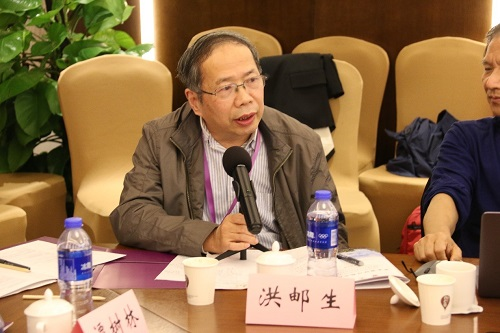
(Photo: Professor Hong Yousheng presids over the meeting)
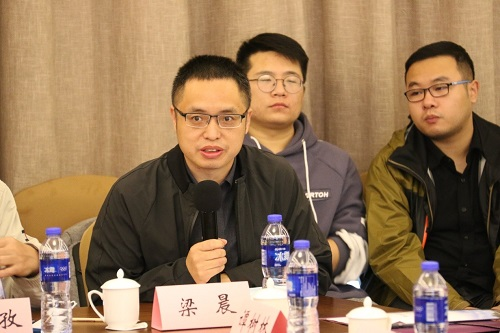
(Photo: Professor Liang Chen makes an opening speech.)
The forum focused on three topics: "Indo-Pacific Strategy and Competition Among Great Powers," "Reshaping of the US Policy Towards China" and "The Application of History and Theory to Reality."
Richard Weitz, a senior research fellow and director of the Political-Military Analysis Center of the Hudson Institute, Fu Mengzi, a deputy dean and research fellow of the China Institute of Contemporary International Relations, and Professor Zhao Kejin, a deputy dean of the School of Social Sciences of Tsinghua University, delivered keynote speeches at the forum.
Weitz held that starting from the current situation, the international and domestic policies of the newly-elected US government will be largely affected by the balance of power between the two parties in the government. At the same time, it is not appropriate to place China in a more important position in U.S. relationships with China and Russia. China, the United States, and Russia still have very close relations in the political, economic and military fields. The competition among major powers will continue, but the future may see the results of cooperation between major powers in the face of COVID-19 pandemic and other problems.
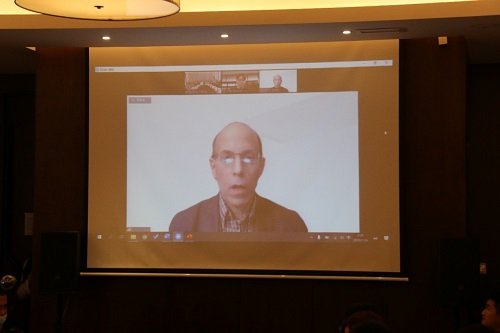
(Photo: Richard Weitz delivers his speech online.)
Fu Mengzi discussed the theme of "U.S. Power Changes and Sino-US Relations" and pointed out that the current pattern of international relations has not fundamentally changed and it still shows a pattern of "one superpower vs. multiple great powers." Moreover, the U.S. power is not declining, and since China's rise is bound to have an impact on the current international status of the United States, it is inevitable for the United States to regard China as a strategic competitor and the world situation will also experience a rapid transformation from one superpower to two superpowers.
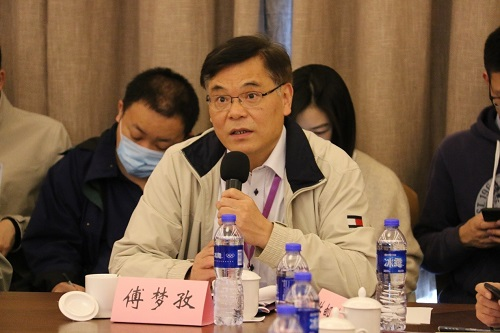
Professor Zhao Kejin delivered a keynote speech on "Motivation of Struggle: Studies on Struggle Strategies in Sino-US Relations." He analyzed the historical patterns of Chinese diplomacy, discussed the future direction of the Sino-US struggle, and also analyzed the characteristics of the current Sino-US struggle. Professor Zhao pointed out that struggle is an important dimension in diplomacy. In the face of increasingly complex Sino-US relations, we must increase our awareness of struggle and improve our ability to struggle so as to better respond to future Sino-US strategic competition.
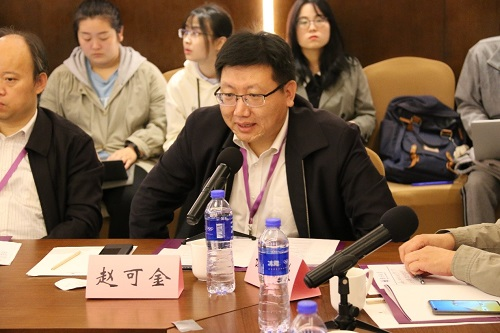
Other scholars attending the forum also shared their unique opinions on the Sino-US relations after the US election and the prospects of Indo-Pacific geopolitics. The theme of the forum was open and inclusive, the content was rich and profound, and the discussion atmosphere was warm and cordial.
This forum was held on the occasion of the US presidential election and was of strategic significance. It promoted exchange and cooperation between our university’s international relations research disciplines and well-known universities and think tanks at home and abroad, and prompted the in-depth development of our university’s studies on Sino-US relations and international relations in the Asia-Pacific region.
